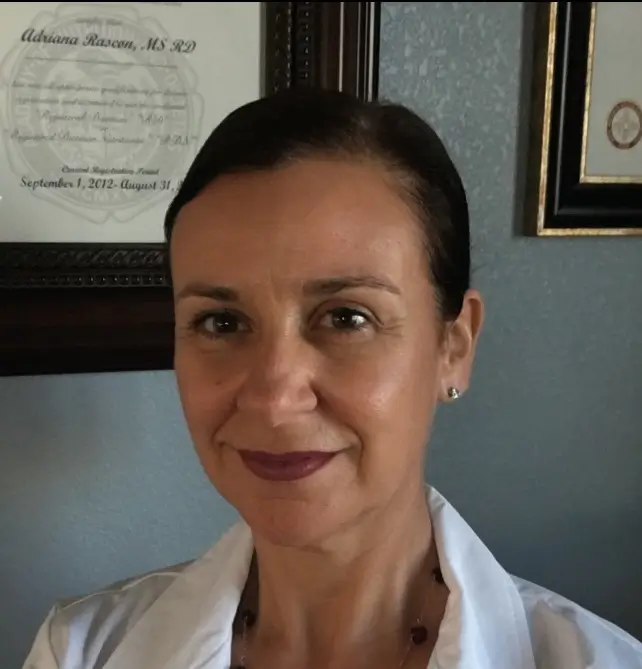Select Your State
Insurance
Find an autoimmune nutritionist or dietitian covered by your insurance
Fay helps you find the best autoimmune nutritionists & registered dietitians covered by your insurance. Dietitians you find on Fay are vetted and available for virtual or in-person sessions near you. Pay nothing (or next to nothing) out of pocket.
Trusted by over 100,000 clients
Fay has high standards for quality of care, read more about how we screen providers to guarantee you're meeting with the best nutrition and wellness experts in the country.
Autoimmune nutrition counseling covered by insurance










The best autoimmune nutritionists and dietitians
Fay has high standards for quality of care, read more about how we screen providers to guarantee you're meeting with the best nutrition and wellness experts in the country.
Fay has high standards for quality of care, read more about how we screen providers to guarantee you're meeting with the best nutrition and wellness experts in the country.
Can't find the right match?
Work with a dietitian or nutritionist for autoimmune disease covered by your insurance
Overcome your challenges with autoimmune diseases
Navigating life with an autoimmune disease can be daunting, but you're not alone in this journey. Autoimmune diseases affect almost 25 million people in the country. It can be difficult to:
- Manage your symptoms of fatigue, joint pain, and more.
- Figure out the best anti-inflammatory diet for you.
- Find autoimmune disease specialists with expertise in your conditions, including healthcare providers and dietitians.
- Afford quality ongoing support for diet and lifestyle changes.
Healing from autoimmune disease with personalized guidance
Living with an autoimmune disorder can feel like a full-time job, juggling symptoms like pain, fatigue, and skin issues all on your own. And to top it off, these conditions often amplify mental health struggles like depression, making it even harder to reach out for the help you really need.
An autoimmune disease nutritionist can offer expert advice on:
- What foods to eat, how much, and when
- What foods to avoid
- Fixing nutritional deficiencies
- Balancing your meals and making better choices related to your diet.
Everyone's journey is different, so your dietitian works with you 1 on 1 to provide a hyper-personalized plan
Have you tried (seemingly) every diet out there with limited success? Trying to beat prediabetes holistically? Worn out from life and know your diet could be better but don’t know where to start? Your dietitian will assess all this and more to craft a completely personalized approach for your treatment based on your goals, lifestyle, health history, motivators, and more. Fay dietitians use clinically proven methods to drive results, including goal setting, intuitive eating, nutrition education, lifestyle counseling, lab testing, and meal planning.
The world of nutrition is overwhelming. There’s so much information out there – but how can you know what’s right for you? The reality is: nutrition is complex and requires an expert’s guidance. Registered dietitians are the only nutrition professionals qualified to offer medical nutrition therapy (MNT). That means RDNs have a deep understanding of the chemical properties of food and how that interacts with one’s body on a cellular level to impact overall health. Instead of stressing out over the latest food trend, put your care in the hands of a dietitian and find ease in knowing you’re getting personalized, research-backed nutrition advice.
Ready to break free from the harsh voice in your head criticizing your every food choice? Whether weight loss is part of your goals or not, your dietitian can help calm the noise with a research-backed approach that addresses both the practical challenges of daily meals and the psychological factors of disordered eating. You can learn ways to manage your health and weight that go beyond the confines of a traditional “diet” by prioritizing balance and finding the right nutrition approach for you personally.
Accountability is a crucial factor in making any lifestyle change. Having a set weekly meeting with your dietitian – and knowing you have an expert on your side – can make a world of difference when it comes to sticking to your nutrition goals. You’ll have regular check-ins where you go over your progress and any challenges you’re facing, and together, you and your dietitian will make adjustments to account for your evolving needs. RDNs know as well as anyone that a successful plan is one that fits into your life, not works against it.
You have to make a lot of decisions every day, including what to eat. Meal planning removes the headache of that decision, and when it’s done in partnership with your dietitian, it’s that much easier to meet your goals without exhausting yourself in the process. All the hard work of figuring out how much to eat and when is already done for you – you just need to stick to the plan. Your RDN can provide meal ideas and recipes too, which can help boost adherence and make following your plan simpler and more enjoyable.
No matter why you’re getting a dietitian’s expertise, intuitive eating principles can help almost anyone cultivate a healthier relationship with food. Using behavioral psychology, intuitive eating emphasizes getting in touch with your body to better understand hunger and fullness cues, identify emotional eating, and remove any shame or guilt that might come up. With this psychological approach, your dietitian can help you calm the “food noise” in your mind to cultivate a sense of empowerment and joy in eating once again.
Meeting your nutrition goals is about more than just the food you eat. Your daily routine – activity level, sleep schedule, stress levels, work life, and environment – has a huge impact on your overall health. Your dietitian will create your personalized plan based on these factors and more. Taking this approach makes your plan more realistic, which makes achieving your goals easier. It also allows your RD to identify any potential challenges and craft a plan to overcome them.
Food can play an important role in managing chronic health conditions, but you need an expert to guide you. Fay has dietitians specializing in diabetes, IBS, PCOS, thyroid health, obesity, and more. These providers can collaborate directly with your broader care team to ensure your nutrition plan is aligned with your ongoing treatments. Your RDN can do more than just make a meal plan based on your goals and condition – they can also educate you on the key factors of eating for that condition, empowering you to continue the care for yourself.
Health is foundational to wellbeing. Fay dietitians are qualified to support weight loss, hormonal imbalances, chronic disease, and much more. Collaborating with an RDN greatly increases your chances of success in meeting your goals. Whatever your nutrition goals are, you can find a board-certified registered dietitian nutritionist specializing in that area with Fay.
Food is intrinsically linked to our health and wellbeing. People who worked with a dietitian through Fay made lifestyle changes that had immense benefit to their physical health.
Making lifestyle changes surrounding food and nutrition had benefits that went beyond the physical. Food and our relationship with it, has far reaching implications on our emotional and mental health.
What to look for in a nutritionist for autoimmune diseases
The right credentials
When searching for a nutritionist for your autoimmune disease, prioritize credentials like RD (Registered Dietitian) or RDN (Registered Dietitian Nutritionist). These board-certified professionals hold a Bachelor's or even a Master's in dietetics and nutrition; some may even have advanced training in autoimmune diseases. They also have direct work experience in the field of nutritional counseling.
Expertise in autoimmune diseases
Look for a dietitian with expertise in treating others with the same autoimmune conditions as you. In your first meeting, ask questions, discuss your needs and symptoms, and learn their approach to personalized nutrition for autoimmune diseases.
Positive reviews
Start by finding an autoimmune nutritionist who has a track record of successfully helping people with conditions like yours. Positive reviews from other clients can boost your confidence in their expertise and approach, giving you a better chance of success.
Communication style
Choose a nutritionist whose communication style clicks with you, especially when managing an autoimmune disease. After all, you’ll be discussing your diet, lifestyle, and health concerns regularly, so it’s essential to feel comfortable and understood. When there's a good communication fit, you're more likely to follow their advice and stick with the plan. Plus, a nutritionist who listens and explains things clearly can make your journey to better health smoother and more effective.

Benefits of working with a Fay Autoimmune Disease Nutritionist
Accepts your insurance
Fay's autoimmune disorder dietitians accept most health insurance plans. This means you may have to pay nothing or next to nothing to see a specialist nutritionist to help you gain relief from your fatigue, pain, and other symptoms.
Virtual dietitian meetings
Online meetings with your nutritionist make it easy to stay on track with your personalized diet and nutrition plan. Schedule your consultations based on your convenience, right from your couch. If you prefer in-person visits, the good news is that Fay also provides that option.
Focused on whole-body health
Autoimmune diseases impact your entire body, making a holistic approach beneficial. A dietitian who embraces a whole-body perspective on nutrition and healing can help you better manage your autoimmune symptoms.
A personalized diet approach
Autoimmune diseases are as unique as you are. Factors like genetics, environment, lifestyle, and inflammation response all shape how you experience symptoms and manage autoimmune disorders like rheumatoid arthritis, systemic lupus erythematosus (SLE), thyroid issues, multiple sclerosis, or ulcerative colitis. So, a tailored, personalized diet plan may work best.

Get relief from fatigue, pain, brain fog, and other symptoms of autoimmune disease
Inflammation
Focusing on anti-inflammatory foods can help manage inflammation in autoimmune diseases.
Try including whole fruits, vegetables, nuts, and omega-3-rich fatty fish like salmon in your diet. Avoid processed foods, sugars, and trans fats that can increase inflammation. It's also important to stay hydrated, limit alcohol and caffeine, and avoid smoking, as these can affect inflammation levels.
Please note that these are generic guidelines. A dietitian can offer a personalized diet plan that meets your specific needs, food intolerances, and dietary preferences.
Nutritional deficiencies
Managing an autoimmune disease can make shopping for whole foods and cooking nutritious meals difficult, which may lead to nutritional deficiencies. Conditions like Crohn's disease or IBS can stop your body from absorbing nutrients properly, even with a balanced diet.
This can start a vicious cycle. For instance, not getting enough sunlight and proper nutrition can cause Vitamin D deficiency. This leads to fatigue, weakened immunity, and worsened symptoms. When you're tired, and your symptoms worsen, going outside or cooking healthy meals is even harder.
Fighting fatigue
If you're dealing with one or more autoimmune disorders, you might often feel extremely tired. This happens because these conditions put your immune system into overdrive, attacking your own body's healthy cells and significantly draining your energy.
Constant pain and inactivity can also lead to poor sleep, further contributing to fatigue. For some autoimmune conditions, following specific diets may help alleviate some of this tiredness.
Joint pain and muscle weakness
Several strategies can help alleviate joint pain and muscle weakness from autoimmune diseases. For immediate relief, over-the-counter pain relievers like ibuprofen can reduce discomfort. A warm compress for stiff joints and muscles and a cold compress for swelling and pain can also help.
Eating a balanced diet rich in anti-inflammatory foods such as omega-3s, fruits, and whole vegetables can also lower inflammation. Physical therapy can strengthen muscles and maintain joint function effectively. Always consult your doctor and a dietitian to tailor these methods to your unique requirements.
Frequently Asked Questions
Can a nutritionist or dietitian help with autoimmune disease?
Meeting with a nutritionist or dietitian who focuses on autoimmune diseases could help you improve how you manage your condition.
These experts tailor your diet and lifestyle to fit your unique needs by identifying food triggers or nutritional deficiencies that may contribute to your symptoms. For instance, a Vitamin D deficiency is linked to autoimmune disorders like irritable bowel syndrome (IBS), psoriasis and psoriatic arthritis, multiple sclerosis, systemic lupus erythematosus (SLE), and more.
Since obesity or being overweight can increase the risk of autoimmune diseases or exacerbate symptoms, a nutritionist can also guide you to lose weight and keep it off.
Can a nutritionist or dietitian help with autoimmune disease?
Meeting with a nutritionist or dietitian who focuses on autoimmune diseases could help you improve how you manage your condition.
These experts tailor your diet and lifestyle to fit your unique needs by identifying food triggers or nutritional deficiencies that may contribute to your symptoms. For instance, a Vitamin D deficiency is linked to autoimmune disorders like irritable bowel syndrome (IBS), psoriasis and psoriatic arthritis, multiple sclerosis, systemic lupus erythematosus (SLE), and more.
Since obesity or being overweight can increase the risk of autoimmune diseases or exacerbate symptoms, a nutritionist can also guide you to lose weight and keep it off.
Are autoimmune diseases curable?
Unfortunately, there is no cure for most autoimmune disorders. However, you can live a long, fulfilling life by managing your symptoms. Treatment may include anti-inflammatory drugs and changes to your diet and lifestyle.
Are autoimmune diseases curable?
Unfortunately, there is no cure for most autoimmune disorders. However, you can live a long, fulfilling life by managing your symptoms. Treatment may include anti-inflammatory drugs and changes to your diet and lifestyle.
Do Fay dietitians for autoimmune disease accept my insurance?
Yes, Fay dietitians for autoimmune diseases accept all major health plans.
Using Fay, it's easy to search for a dietitian who specializes in autoimmune disorders and check if they accept your specific insurance. And the best part? The dietitians bill your insurance directly, allowing you to focus on your nutritional needs and manage your symptoms.
Do Fay dietitians for autoimmune disease accept my insurance?
Yes, Fay dietitians for autoimmune diseases accept all major health plans.
Using Fay, it's easy to search for a dietitian who specializes in autoimmune disorders and check if they accept your specific insurance. And the best part? The dietitians bill your insurance directly, allowing you to focus on your nutritional needs and manage your symptoms.
Does Fay have online or virtual dietitians and nutritionists who can help with autoimmune disorders?
Absolutely. Managing daily activities with the fatigue, pain, and other symptoms of autoimmune diseases can be overwhelming, making it tough to plan doctor visits, get medication, and consult nutritionists.
With Fay, you can easily find an online nutritionist who specializes in your condition and schedule virtual appointments at your convenience.
Does Fay have online or virtual dietitians and nutritionists who can help with autoimmune disorders?
Absolutely. Managing daily activities with the fatigue, pain, and other symptoms of autoimmune diseases can be overwhelming, making it tough to plan doctor visits, get medication, and consult nutritionists.
With Fay, you can easily find an online nutritionist who specializes in your condition and schedule virtual appointments at your convenience.
Fay connects people with Registered Dietitian Nutritionists to receive personalized nutrition counseling, covered by insurance. We accept over 700+ insurance plans so most patients will pay between $0 - $12 per session. Fay boasts the largest network of dietitians in the country with over 1,000, giving access to life-changing nutrition care to millions.
Fay has dietitians that specialize in eating disorders, gestational diabetes, bariatric, cardiovascular, weight management, type 1 and type 2 diabetes, stage 1 through 4 chronic kidney disease, oncology, GI, and many others. All dietitians on Fay are board-certified, licensed healthcare providers.
A registered dietitian (RD) or registered dietitian nutritionist (RDN) is a credentialed practitioner who has, at least, completed a bachelor’s degree, a supervised practice program, the Commission on Dietetic Registration’s exam, and a state license. Both RD and RDN are protected titles, meaning only those who have completed the qualifications can use the titles. Nutritionist, however, is not a protected title, and anyone can claim it. There is no standardized training for nutritionists, and many nutritionist training programs are unregulated. Registered dietitians can provide preventative care and treat conditions like diabetes, eating disorders, gastrointestinal disorders, and many other medical conditions with medical nutrition therapy.
Most people get their sessions for free when they book with Fay. Without coverage, you could pay closer to $150 per session. To get more confidence about your coverage, you can check your price using our pricing tool.
Yes, Fay nutritionists accept most insurances. Nutrition services are only covered by insurance if the nutritionist is a Registered Dietitian (RD) or Registered Dietitian Nutritionist (RDN). When you book through Fay, we guarantee all providers are board-certified RDs / RDNs and capable of accepting your insurance. We accept most major insurances including: Blue Cross Blue Shield, United Healthcare, Cigna, Aetna, Anthem, Humana, and over 700+ insurance plans. You can check to see if you're covered by using our pricing tool.
Find the best autoimmune disease nutritionist covered by your insurance
.jpeg)





















































.svg)